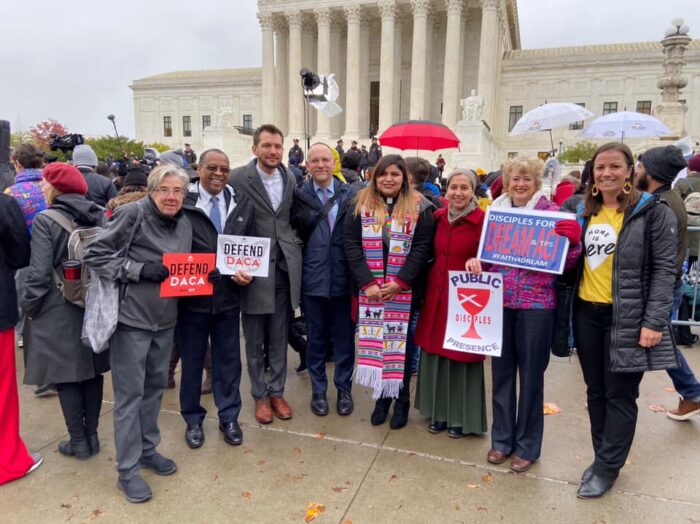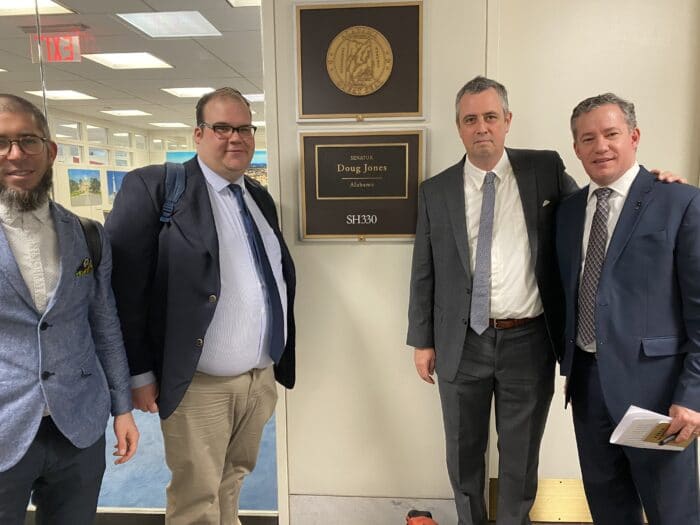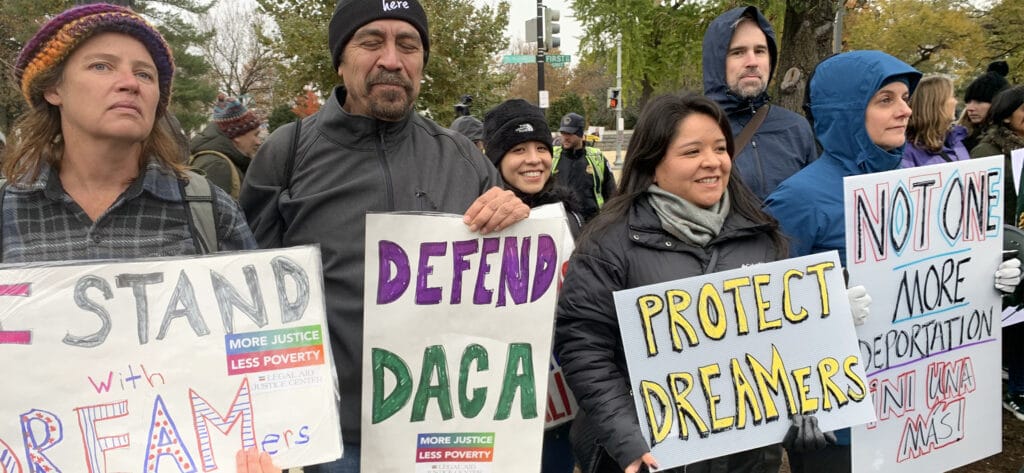Advocacy 101
Advocacy Basics
“How terrible it will be for those who make unfair laws, and those who write laws
Isaiah 10:1-2
that make life hard for people. They are not fair to the poor and they rob my people
of their rights. They allow people to steal from widows and take from orphans what
really belongs to them.”
What is Advocacy?
Advocacy is an action taken by individuals, groups, or organizations to defend, support, or protect others. Generally, advocacy is standing with or standing for a person or group that is disadvantaged or denied justice in society. In the effort to bring about justice, advocacy may include education, affecting public policy, joining coalitions, and participating in nonviolent direct actions. Effective advocacy enables and supports individuals and groups working to correct the injustices or abuses to which they are subjected. Adapted from the website of the Latin American Working Group.
Why should I care about advocacy?
These are challenging times for our nation, as debate rages over fundamental decisions regarding our national priorities, values and commitments, and how they will be expressed in public policy. Events of recent times remind us that we cannot ignore economic, social, and ecological realities that have led to greater abundance for some and scarcity for many others. In the challenges before us today, we, as people of faith, can hear the echoes of prophets and believers who, throughout history, lifted up a vision of right relationship within human community and with God. God’s vision of the wholeness of creation has always challenged the human limits of our thoughts, imaginations, and hopes.
The Hebrew people were continually reminded that the way in which their human community was structured reflected their relationship to God. In the prophetic tradition, justice in human community is inextricably linked to being in right relationship with God. For as God had brought the people through great trouble, so they were to respond to those in trouble in their midst.
Jesus reminds us of the call to compassion and justice, showing special care and concern for those in his day who were considered “expendables.” “Truly I tell you, just as you did it to one of the least of these who are members of my family, you did it to me” (Matthew 25:40).

How do I develop and Advocacy Strategy?
Before any advocacy campaign begins, before the letter-writing, petitions, or protests, advocates must have a clear strategy. This is an overall map of where you are, where you want to be, and how to get there. Start by asking yourself these five questions.
- What Do You Want? (Objectives)
- Who Can Give It to You? (Audiences)
- What Do They Need to Hear? (Message)
- Who Do They Need to Hear It From? (Messengers)
- How Can We Get Them to Hear It? (Delivery)
What is the timing for advocacy on the federal level?
The key working days for the House and Senate are Tuesday, Wednesday, and Thursday. This allows members of Congress to travel to their home districts and provides time for committee work and various kinds of caucusing and negotiations. In Washington, D.C., Mondays and Fridays are better times for meeting with legislative aides, but advocates should not be deterred by this and may try to set up a meeting on any weekday. Even when there is floor action in the House or Senate, it may be the case that the important action is happening in committees, caucuses, and negotiations.
It is not easy to predict when members will be in home districts and states, but it is important to contact the home offices of members to pursue appointments, since it is just as effective to meet with a staff member there. Of course, don’t forget phone calls, hand-written letters, and emails. These are all effective ways to weigh in on important issues.
Why is it important to advocate on state and local levels, as well as the federal level?
Advocacy on the state and local level is as important as your work on the federal level. Today, the relationship between the states and the federal government in shaping and implementing public policy is being redefined on a broad range of issues, particularly budget deficits, homeland security, health care, education, environment, election reform, and welfare reform. The connection between federal and state public policy is becoming more evident. In this new environment, public policy advocacy is critical at both the state and federal level. Every state and local legislative calendar is different, so check on your state and local webpages to find out when legislation is on the move.
Advocate with the D.C. Office
The issues we face can feel overwhelming, and advocacy on those issues can feel like a daunting task. The United Church of Christ Washington D.C. Office, located right on Capitol Hill, is here to help! Check out our action center for a one click way to contact your legislators on issues being discussed right now! Or reach out to us with questions on where best to start!


Get Involved. Answer the Call to Action.
Questions? Contact UCC.
Hannah Santos
Communications & Campaigns Specialist
santosh@ucc.org
